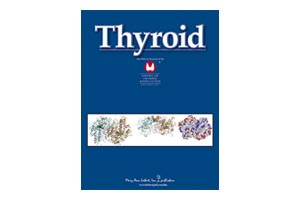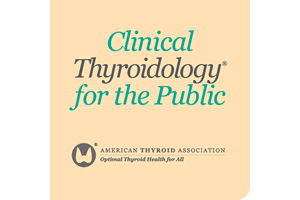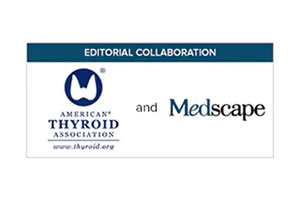
FOR IMMEDIATE RELEASE FROM MARY ANN LIEBERT, INC., PUBLISHERS New Rochelle, NY, January 8, 2025—A…

FOR IMMEDIATE RELEASE FROM MARY ANN LIEBERT, INC., PUBLISHERS New Rochelle, NY, January 8, 2025—A…

We are thrilled to announce that Theodora Pappa, MD, PhD, has been awarded the 2023…

From Clinical Thyroidology® for the Public: Most children with thyroid cancer do very well as…

From Clinical Thyroidology® for the Public: A small fraction of people who have thyroid surgery…

Thyroid Cancer Survivorship: A Physician’s Own Experience Kaniksha Desai, MD, interviews Anupam Kotwal, MD, about…

From Clinical Thyroidology® for the Public: Once a cancer is diagnosed and surgery is an…

Given the evolving landscape of therapeutic options for RAIR-DTC, it is essential to highlight the importance of timely evaluating patients with advanced thyroid cancer.

Thyroid cancers (TC) are driven by a handful of genetic alterations. Papillary TC primarily harbors mutations involving BRAF, RAS or RET genes.

Medullary thyroid cancer (MTC) is a rare thyroid malignancy and considered a neuroendocrine type of tumor.

There are limited number of studies that have examined patients preferences concerning treatment options for patients with thyroid cancer.